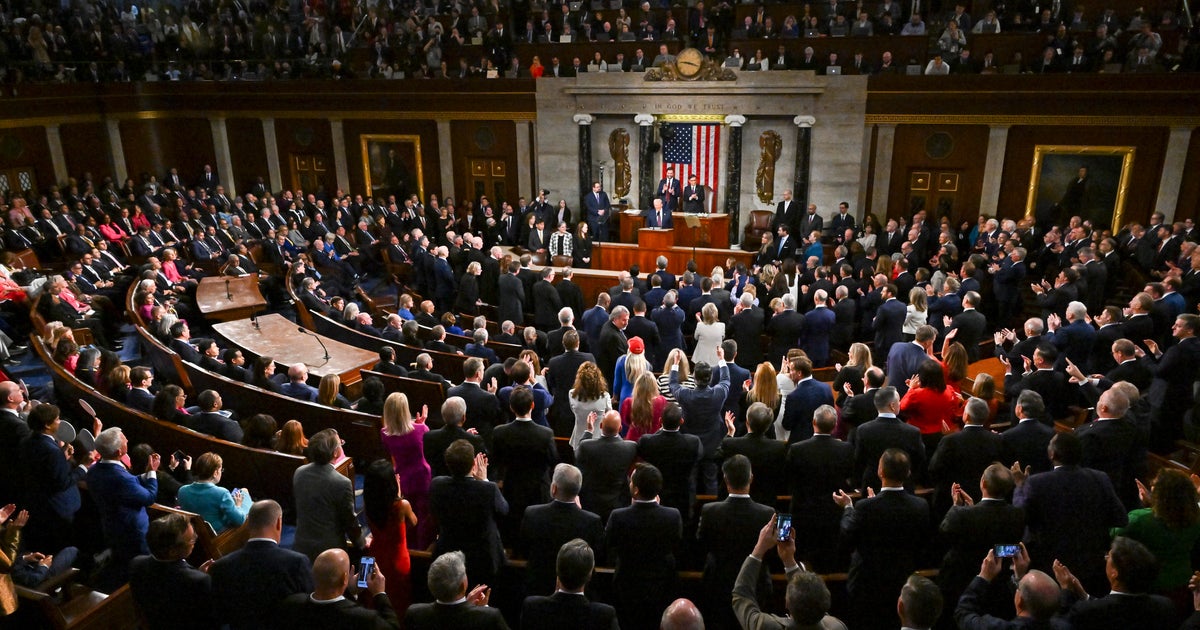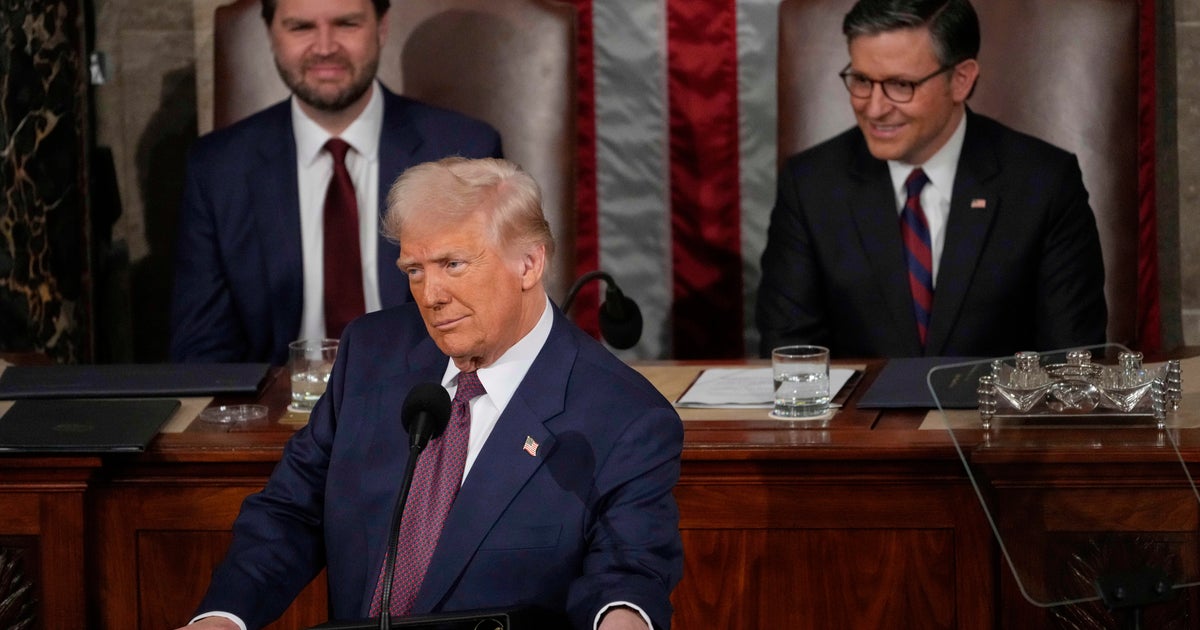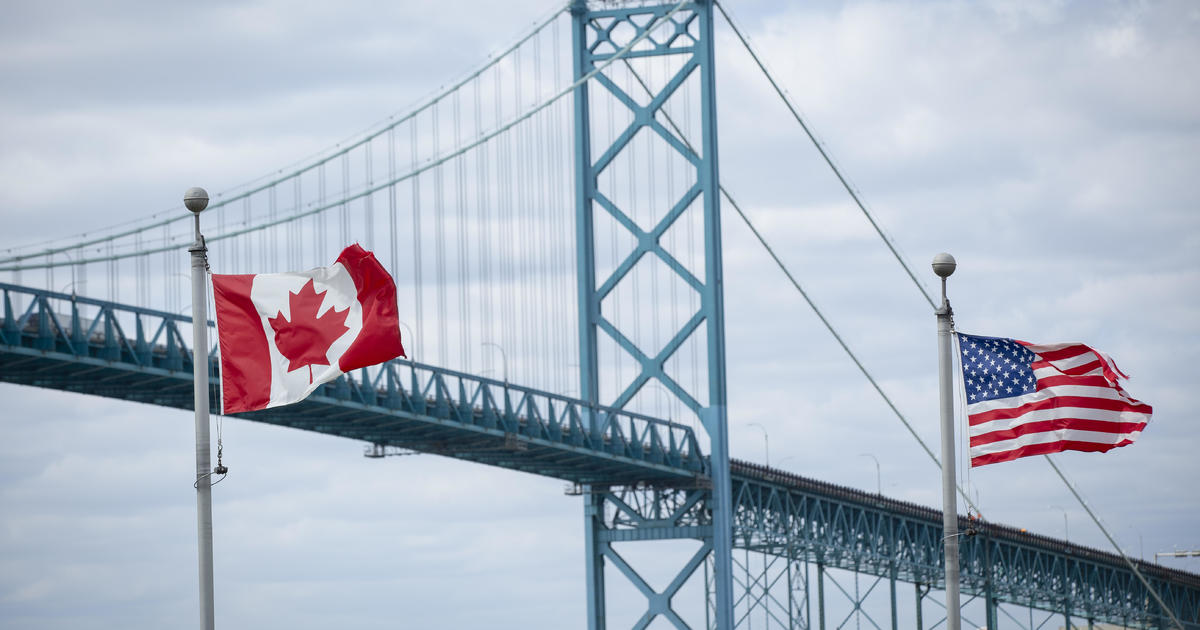Trump probably can't impose a national lockdown or quarantine. Here's why
The phrase "national lockdown" has been tossed around in recent days and weeks, as most — but not all — states issued some form of a stay-at-home order while the number of confirmed coronavirus cases and deaths in the U.S. climbs.
So far, President Trump has mostly dismissed the notion of an undefined national lockdown or national quarantine, and has repeatedly declined to recommend that all states issue some sort of stay-at-home order. He floated the idea of a quarantine for residents of the greater New York and New Jersey area, then quickly backed off that proposal.
But does the president have the constitutional and statutory authority to issue some form of a national lockdown, similar to what has been done in Italy? It's not likely he does, constitutional experts say.
"There's not a federal lockdown authority or anything like that, or a federal quarantine authority," said Ilya Shapiro, director of the Robert A. Levy Center for Constitutional Studies at the Cato Institute and legal consultant for CBS News.
"A national lockdown, I think, is pretty far out of bounds for the president," said Keith Whittington, William Nelson Cromwell professor of politics at Princeton University's Department of Politics and an expert in constitutional interpretation.
Governors have "broad discretion" to restrict and police movement within states, such as the 43 states with some version of a stay-at-home order have done, Shapiro noted. But while the president could recommend that all citizens stay at home, or recommend that all governors issue such an order, the president's own authority to issue such an enforceable directive isn't there.
"The president could shut down airports and ports and the interstate system potentially and things like that," but the president has no general authority to restrict citizens as they go about their daily lives, Shapiro said.
Not to mention, Whittington said, the federal government doesn't have the manpower to enforce a nationwide lockdown.
Mr. Trump has more latitude to restrict interstate travel — that is, travel between the states — than intrastate travel, which would be tantamount to some sort of quarantine. But even that authority has obstacles.
"I think the easiest thing to imagine possibly is the federal government trying to restrict people at airports, at interstate train stops and maybe at interstate highways," Whittington said. "I think each one of those are a little bit dicey legally as well. But they're probably on strongest ground because they're most clearly the hubs of interstate travel and sort of dealing most directly with people who are moving and can be identified as moving from one state to another state."
"It would be much harder I think if you start expanding to other states where for example ... trying to simply address people who are already inside the state," Whittington continued. "But even then the statutory authority for the president to do that is pretty restrictive. Unlike congressional statutes that specify presidents can prevent people from entering into country, there's nothing comparable quite on the books for presidents restricting movement across state boundaries."
An October 2014 Congressional Research Service report on federal quarantine authority says "federal authority over interstate and foreign travel is clearly delineated under constitutional and statutory provisions. Less clear, however, is whether the state police powers may be used to restrict interstate travel to prevent the spread of disease."
There are statutes in place allowing the secretary of Health and Human Services and the Surgeon General to quarantine individuals and prevent the spread of disease. Those laws most anticipated people entering the U.S., Whittington said. "Regulations prescribed in this part authorize the detention, isolation, quarantine or conditional release of individuals, for the purposes of preventing the introduction, transmission and spread of communicable diseases," a portion of U.S. law governing interstate quarantine reads.
But a broad "authority of restricting people moving state to state has never really been tested," Whittington said.
Last week, after Mr. Trump tweeted about a possible quarantine of the greater metro New York area, he backed off the idea, and the Centers for Disease Control issued a travel advisory instead. The president could potentially place the National Guard along state borders to encourage people from crossing into or out of hot spots, although the military could not use force to enforce that, Shapiro noted.
"Now if you kind of dig into what that means from a legal perspective, I don't think he was contemplating a shelter-in-place order," Shapiro said, referencing Mr. Trump's idea for the tri-state area. "Certainly his lawyers would have quickly told him we can't do that for the reasons I just explained to you. But there could be federal authority if you want to send the National Guard to prevent people from leaving New York state and going into Pennsylvania or something like that ... I don't know whether that would be wise, there are issues of the Posse Comitatus Act, which prevents the military from acting as police. But here, would they be acting as police or would they be acting as kind of first responders? It's not that they would be arresting people, kind of a physical barrier or a show to prevent interstate travel or what have you."
The aforementioned 2014 CRS report notes that "while the federal government has the authority to authorize quarantine and isolation under certain circumstances, the primary authority for quarantine and isolation exists at the state level as an exercise of the state's police power."
The Federal Emergency Management Agency (FEMA), in a frequently asked questions portion of its website, has pushed back on rumors of a potential national lockdown, pointing back to the states.
"Is there a national lockdown or quarantine? No. States and cities are responsible for announcing curfews, shelters in place, or other restrictions and safety measures," FEMA says.
For now, the president doesn't seem keen on exercising his authority to restrict movement nationally.
"Well we've talked about it, there are obviously there are some parts of the country that are in far deeper trouble than others," Mr. Trump said last week when he was asked about the possibility of a national stay-at-home order.
The president said his administration would let people know if such a drastic step were to be taken, but it's "pretty unlikely."



